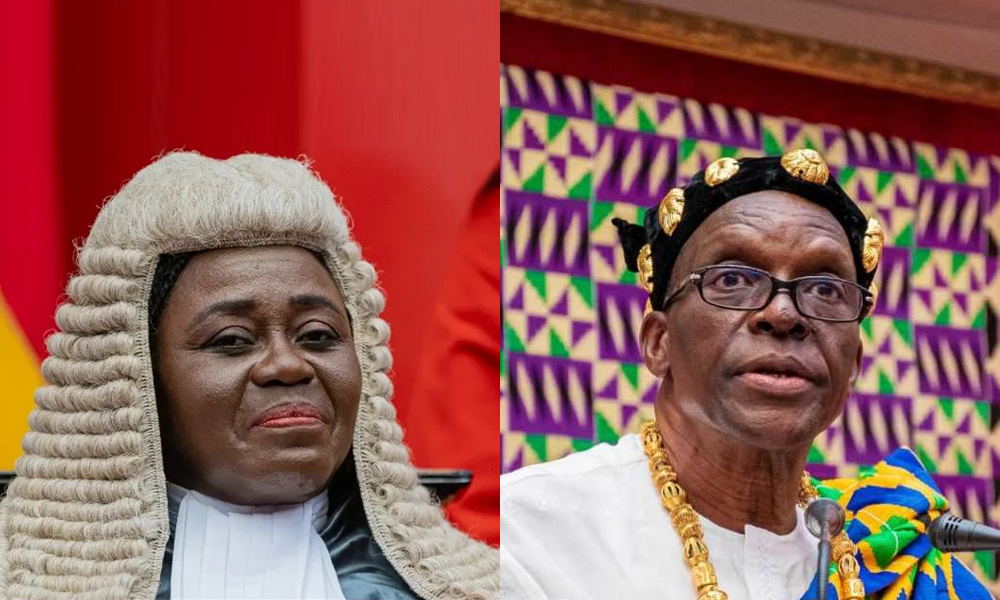Regardless of the Supreme Court’s forthcoming ruling on the Speaker of Parliament’s decision to deem four seats in the legislature vacant, Rt. Hon. Alban Sumana Kingsford Bagbin faces mounting calls to uphold his stance.
Across social media, a chorus of voices is urging the Speaker to display unwavering resolve as the countdown to Tuesday — when MPs reconvene — accelerates, bracing for potential turmoil over the rightful occupants of the Majority’s spot in the chamber.
The resounding plea for Bagbin to challenge the Judiciary stems from the belief that Ghana’s Supreme Court stretched its authority when it halted the Speaker’s proclamation that the seats in the Amenfi Central, Fomena, Suhum, and Agona West constituencies had lapsed.
The Speaker’s declaration, necessitated after the incumbents of these seats sought re-election under different party banners instead of their respective Parliamentary affiliations, was lawfully grounded in Article 97(1)(g) of the 1992 Constitution.
Bagbin also referenced a precedent where his predecessor, Prof. Aaron Mike Ocquaye, disqualified an MP for Fomena after expressing intentions to contest as an independent candidate in the 2020 election.
Following Bagbin’s vacancy ruling, the Majority Leader of the ruling New Patriotic Party (NPP), Alexander Afenyo Markins, swiftly petitioned the Supreme Court for a reversal, citing the impact on three NPP seats compared to one from the opposition National Democratic Congress.
Those affected by the ruling are the NDC’s Peter Yaw Kwakye Ackah of Amenfi Central, Andrew Amoakoh Asiamah of Fomena, Kojo Asante of Suhum, and Cynthia Morrison of Agona West.
Despite Asiamah’s standing as an independent MP, his past allegiance to the NPP and subsequent support for the party in Parliament add to the intricate web of implications.
The recalibration ushered by the vacancy pronouncement has flipped the narrow NPP majority, with the NDC, previously holding 137 seats against the NPP’s 137 plus the support of independent MP Andrew Asiamah, now inching ahead.
Sensitive to the potential shift in parliamentary dynamics, the NPP’s hasty recourse to the court — known for favoring the party in political disputes— raises concerns about the court’s purported alignment with the ruling party’s interests.
The Supreme Court’s intervention to suspend Bagbin’s ruling pending a comprehensive hearing on the matter has sparked reservations about alleged favoritism towards the NPP, echoing past instances where the Judiciary allegedly served the ruling party’s agenda.
As the verdict looms, apprehensions persist that the judiciary’s tilt towards the NPP could influence the outcome in favor of the incumbent’s retention of a majoritarian position in Parliament.
In preemptive solidarity, numerous Ghanaians extol the Speaker to defy the Supreme Court if it leans towards the NPP’s favor, advocates prominently led by the resolute NDC MPs who vow to embrace their newfound majority status in defiance of external verdicts.
With parliamentary dynamics on the cusp of transformation, the impending Tuesday session holds the promise of a recalibrated power balance, setting the stage for a showdown in the legislative terrain.


